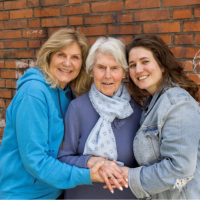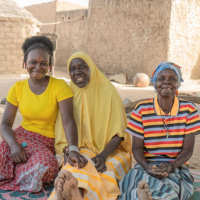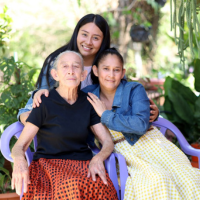On any given day, around 300 million women and girls globally will have their periods.
But millions of girls and women lack access to basic menstrual products, support facilities, and crucial health information.
When girls don’t have basic products like menstrual pads, they are often forced to use unhygienic materials like old newspapers, rags, earth, sand, ash, grass or leaves. These are uncomfortable and can cause infections.
And when clean water is scarce, managing periods becomes even harder. At least 500 million girls and women – that’s one in four of the world’s female population of reproductive age – don’t have what they need to manage their period, whether menstrual supplies like sanitary pads or access to a clean toilet.
But the consequences go beyond just physical health. Without proper period management, girls often miss school – up to 24 days a year in some cases.
The myths and stigma attached to periods in many societies often means girls are excluded from everyday activities, and over time, limits their life opportunities. It’s time to change the narrative – periods are normal, not shameful.
You can help break down barriers and empower every girl to manage her period with dignity and confidence.
Join us in smashing period taboos and creating a world where every woman and girl can thrive, period.
By improving menstrual health and tackling period-shame we can improve girls’ attendance and performance at school; break down taboos and misconceptions around menstruation; raise girls’ self-esteem and enable girls to fully participate in all aspects of society. Your support can help ensure ALL girls get an equal opportunity.
Hear from different generations of girls and women around the world about how they managed their periods – what’s changed and what has stayed the same.



In 2018, as part of the “We Need to Talk. Period.“ campaign, Plan Ireland’s Youth Advisory Panel (YAP) conducted vital research tackling Ireland’s “toxic trio” of period injustice: the unaffordability of menstrual products, inadequate menstrual education, and the pervasive shame and stigma surrounding menstruation.
Out of 1,100 surveyed girls aged 12-19+, half faced challenges affording period products, while many felt their schools lacked valuable information about menstruation. Over half expressed embarrassment about their periods.
Central to our campaign was addressing the profound consequences of inadequate menstrual hygiene management on girls’ education and overall well-being. By amplifying the experiences of girls in both Ireland and Uganda, we aimed to shed light on this crucial issue and drive meaningful change.